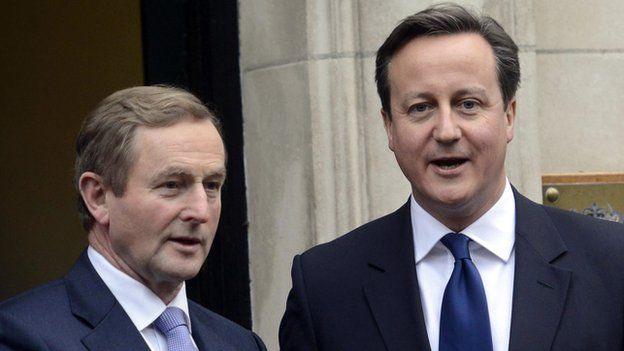EU referendum: What would a Brexit mean for NI economy?
- Published
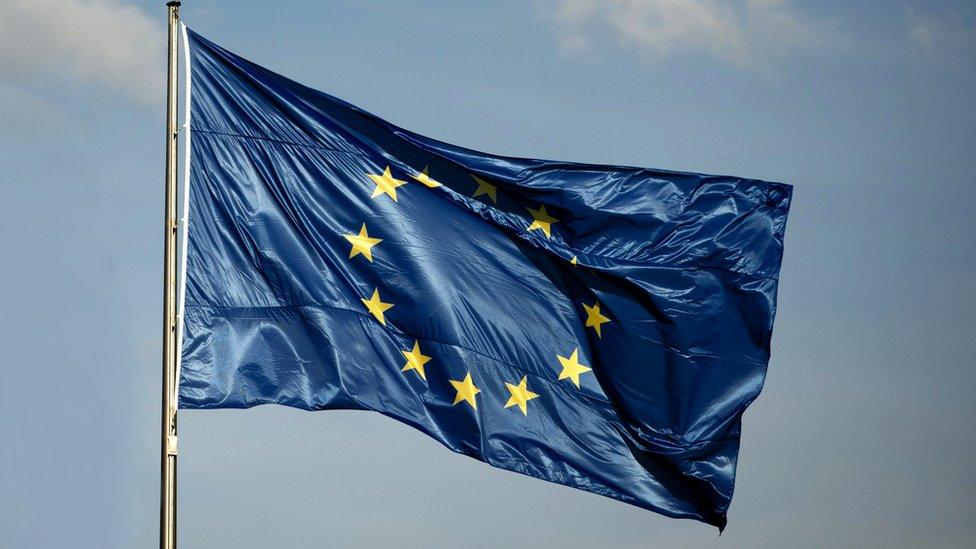
The UK can currently sell its goods across the EU without tariffs, quotas or other restrictions
How would the UK leaving the European Union affect Northern Ireland's economy?
The answer is not straightforward.
That is because there is no certainty about what would replace the UK's current trading relationship with the EU, nor the knock-on effects on trade with other countries.
Currently the UK is in a single EU market.
That means companies can sell their goods, and to a lesser extent services, across the EU without tariffs, quotas or other restrictions.
There are common rules and standards, EU citizens can move freely to look for work and the EU makes deals with other trading blocs.
There is also a price tag attached to EU membership - in 2014 it was a net £9.8bn for the UK or less than 1% of national income.
Attempts to assess the impact of a so-called Brexit - the shorthand term for a British exit from the EU - have to make assumptions on what would replace that single market arrangement and the specific implications for Northern Ireland.
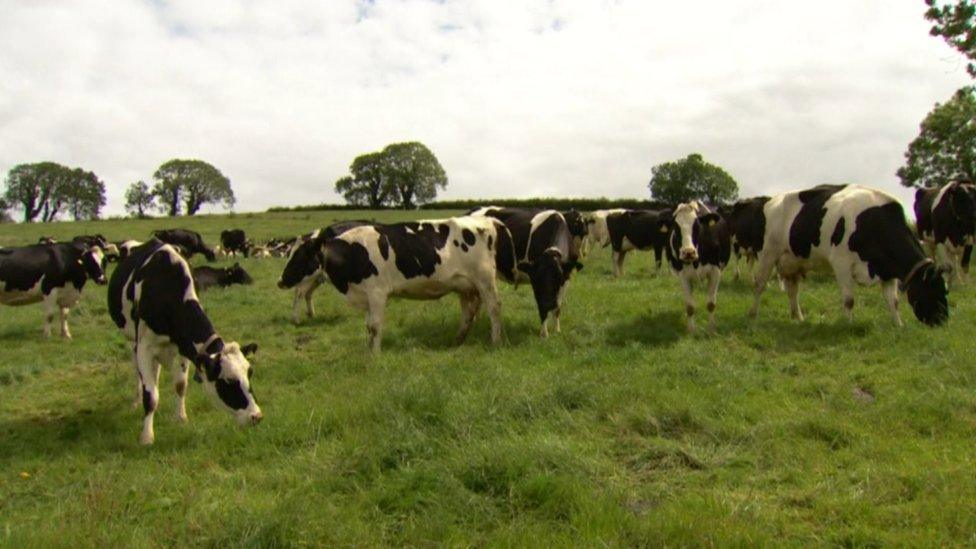
Food, beverages and agricultural products make up 35% of Northern Ireland's exports to the EU
Some leading research groups - Oxford Economics, the Economic and Social Research Institute (ESRI) and the Nevin Economic Research Institute (Neri) - have grappled with the issue.
None of them have anything particularly positive to say about the economic consequences of leaving the EU.
The main concerns are trade with the Republic of Ireland and the impact on foreign investment.
However, Dr Graham Gudgin, one of the most prominent pro-Brexit economists, has said leaving would not have "much effect" on the Northern Ireland economy.
He said most studies suggest the impacts on the UK economy would be in the range of plus or minus 2% of GDP which he describes as "within the margin of error".
Oxford Economics
The Oxford Economics report, external, commissioned by the Northern Ireland Executive, found that a Brexit would harm the UK economy in eight of the nine scenarios it examined.
In all but one of those eight cases the damage was worse in Northern Ireland, compared with the UK as whole.
The report concluded this is in large part because the high level of trade with the Republic of Ireland makes Northern Ireland more vulnerable to any disruption in UK-EU trade.
In the best case scenario there would be virtually no impact on the Northern Ireland economy.
That is described as the "liberal customs union" option.
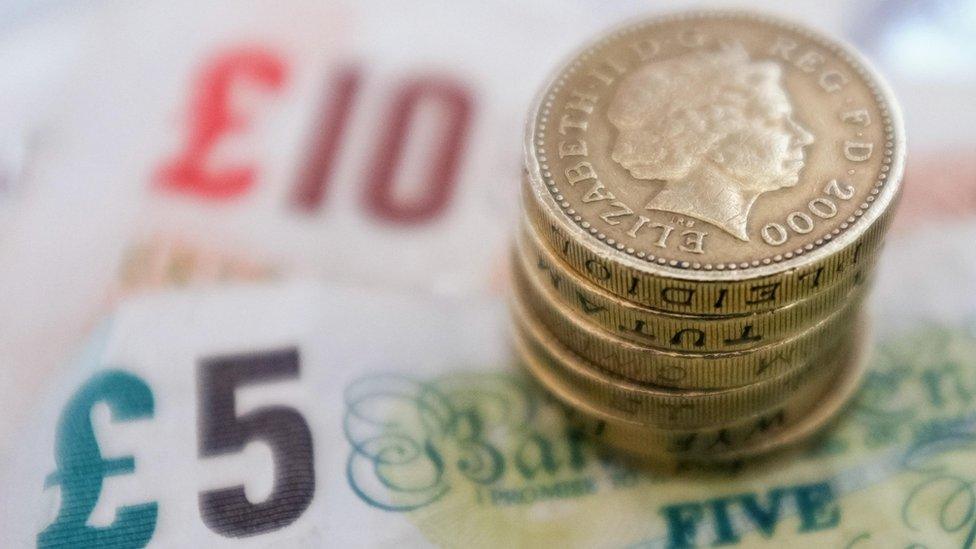
Researchers have been grappling with the issue of the impact of a Brexit on Northern Ireland's economy
It would mean an arrangement where the trade in goods between the UK and EU remains tariff-free.
The UK would no longer have to contribute to the EU budget but could not make its own trade deals.
That scenario would also see deregulation, tax cuts and only modest restrictions on immigration.
In the worst case, economic output in Northern Ireland would be almost 6% lower in 2030 than it otherwise would have been.
That is described as the "populist most favoured nation" scenario, in which the UK fails to make a free trade deal with the EU, aggressively clamps down on immigration and spends more on public services.
Nevin Economic Research Institute
This study, external does not attempt to quantify longer-term impacts, saying they will be decided by political factors that economic modelling cannot predict.
But it does assess that a UK decision to leave the EU would cause short-term disruption to trade.
It also echoes Oxford Economics by saying that the structure of the Northern Ireland economy means it faces a "disproportionate risk" from a Brexit.
Using official data, it shows the EU is a more important export market for Northern Ireland than it is for the rest of the UK.
Food, beverages and agricultural products make up 35% of Northern Ireland's exports to the EU, while for the rest of the UK the sector makes up only 10%.
Neri says food is a sector that "could be more vulnerable to trade barriers", particularly around the issue of product standards.
The report also points to the importance of cross-border trade for the Northern Ireland retail sector and cautions that a disruption to this trade "may cause significant uncertainty and possible job losses".
Economic and Social Research Institute
The Dublin-based ESRI has assessed the potential impact of a Brexit, external on the economies of both parts of Ireland.
Again it focuses on cross-border trading links and cites a "comprehensive study" that estimates that EU membership increases trade by about 20% compared to a bilateral trade agreement with the EU.
It concludes that reversing this trade integration benefit implies a reduction of total merchandise trade of more than 10% for Northern Ireland.
However, the full effect of that could take more than a decade to be felt.
It warns that foreign direct investment also could be "significantly reduced" as the result of a Brexit, reversing any benefits from cutting the corporation tax rate in Northern Ireland.
The conclusion of one of the report's authors, Dr Edgar Morgenroth, is that "while a Brexit might make some people in the UK feel better, it is very likely to make everyone poorer".
The pro-Brexit case?
The Economists for Brexit group has not produced a specific study on Northern Ireland.
Its model for the UK as a whole produces a positive economic outcome that would involve unilaterally dropping all import tariffs and abolishing EU regulations on the environment and workplace protections.
The Leave side also say economic predictions have a poor track record in the last decade and that economic models often tell you more about the beliefs of the modellers than the future of the economy.
- Published16 March 2016
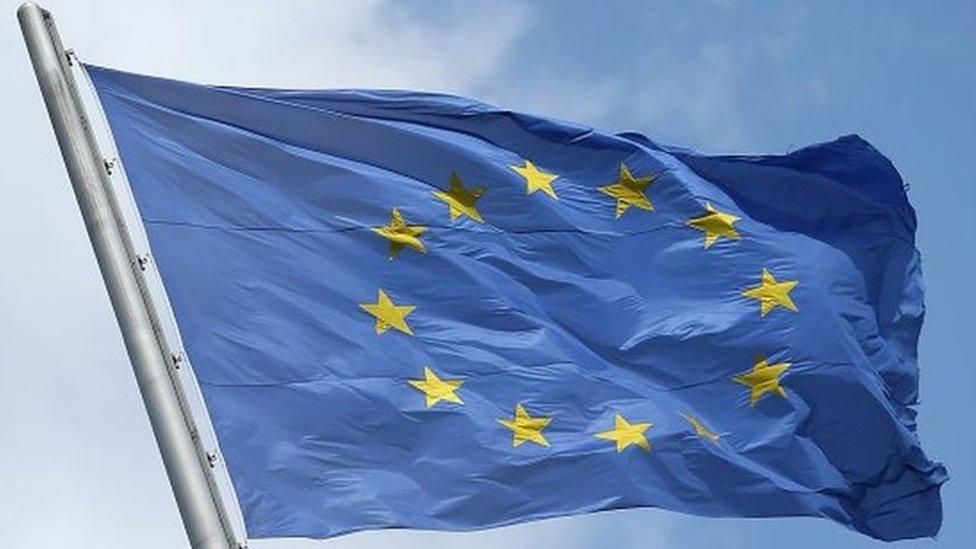
- Published7 March 2016

- Published8 February 2016
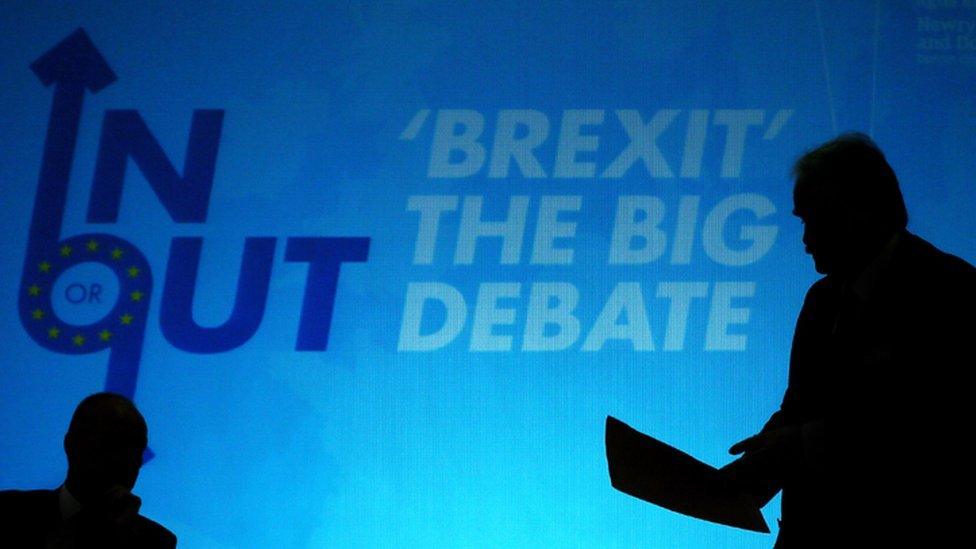
- Published3 February 2016

- Published25 January 2016
